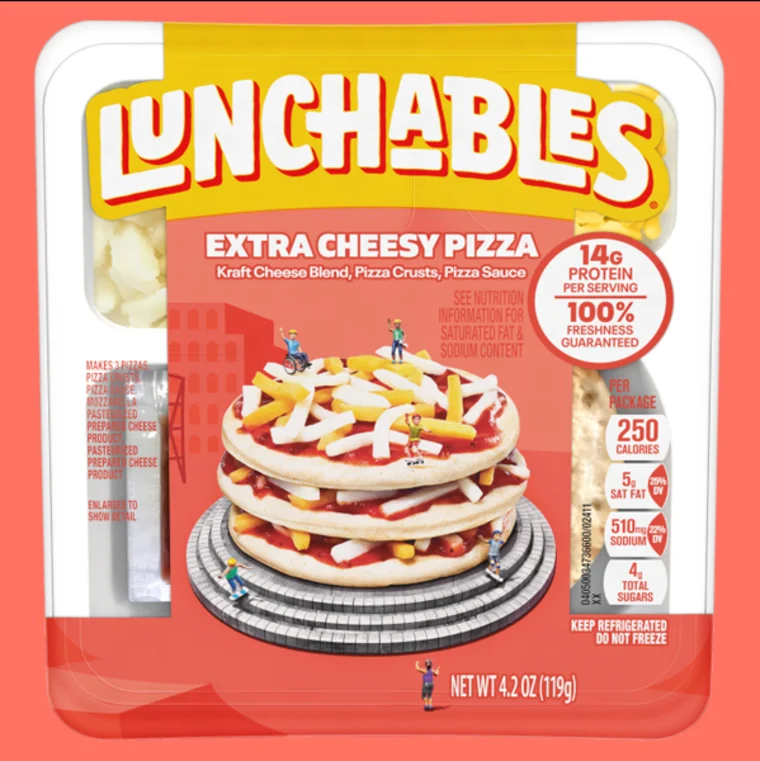USA: lead, cadmium and phthalates found in children’s snacks

In the USA, and recently also in Italy, the so-called " Lunchables " have spread, ready-made snack kits that typically include crackers, cheese, cold cuts, and sometimes other small extras such as biscuits or fruit. They are sold as a convenient and easy to prepare lunch or snack for children and adults.
For decades, the assortment of pre-packaged snacks – from deli meats and crackers to pizza – has become a staple of childhood, generation after generation. In recent years, Lunchables have also become a menu item at many schools in the United States, thanks to the United States Department of Agriculture.
But now Consumer Report, a group that follows the quality of products offered to consumers, hopes that things will change, or that they are no longer offered, or that the offer of lunchables will change.
The popular snack may not be the healthiest option for growing children. The “lunch” snacks contain a worryingly high level of lead and sodium, according to their report.
“We do not believe anyone should eat these products regularly, and they certainly should not be considered a healthy school lunch,” Eric Boring, a chemist at Consumer Reports who conducted the tests, said in a statement.
The advocacy group said it tested 12 store-bought Lunchables products, made by Kraft Heinz, and compared them to similar lunch and snack kits from other manufacturers.
While none of the kits exceeded legal or regulatory limits, tests found “ relatively high levels of lead, cadmium and sodium,” said Brian Ronholm, director of food policy at Consumer Reports.
Classified as a human carcinogen, cadmium has been linked to kidney and bone disease, as well as cancer, according to the World Health Organization. However, since cadmium is a naturally occurring element in soil, it cannot be entirely avoided.
As for lead, there is no safe level of consumption for children, notes the Centers for Disease Control and Prevention.
“There's a lot to worry about in these kits,” said Amy Keating, a registered dietitian at Consumer Reports, in a statement. “They are highly processed foods, and regular consumption of processed meat, the main ingredient in many of these products, has been linked to an increased risk of certain types of cancer.”
Sodium levels in the store-bought kits ranged from 460 to 740 milligrams per serving, “nearly a quarter to half the recommended daily sodium limit for a child,” Consumer Reports tests found.
All but one of the kits, Lunchables Extra Cheesy Pizza, contained harmful phthalates – nicknamed “forever chemicals” for their prevalence in plastic that may be linked to reproductive problems, diabetes and some cancers.
Consumer Reports also analyzed two Lunchables kits made specifically for schools that can be served to children as part of the National School Lunch Program.
Although the team did not test the school kits for heavy metals or phthalates, the chemists examined the nutritional information and ingredient lists of the two products – Turkey & Cheddar Cracker Stackers and Extra Cheesy Pizza – to find higher levels of sodium compared to store-bought versions. Therefore the products distributed by schools are even worse than those on the market.
To meet the requirements of the federally assisted school meals program overseen by the USDA, Kraft Heinz added more whole grains to crackers and more protein to Lunchable kits for schools, according to Consumer Reports.
“Lunchables are not a healthy option for children and should not be allowed on the menu of the National School Lunch Program,” Ronholm said in a statement.
Kraft Heinz told USA TODAY in a statement Wednesday that the company has taken steps to make Lunchables more nutritious, such as adding fresh fruit to some kits and reducing overall sodium by up to 26%.
“Many of our Lunchables products are a good source of protein, which delivers nutrients through meats and cheeses,” according to the statement. “All of our foods meet rigorous safety standards, which we ourselves gladly provide to our families… We are proud of Lunchables and stand behind the quality and integrity of its production.”
A daily dose problem
The manufacturers defended themselves by stating that the quantity of lead and cadmium are in any case lower than the health standards required by the states, even the most restrictive ones such as California, but the presence constitutes a very high percentage of the maximum daily doses and snacks, for them nature, they can be consumed several times a day. This means that children are taking in dangerous amounts of these substances.
Consumer Report petitions USDA to remove Lunchables from school cafeteria menus Following its findings, the nonprofit consumer group said it has petitioned the USDA to remove Lunchables from school cafeterias. The petition had more than 14,100 signatures as of Wednesday morning.

Thanks to our Telegram channel you can stay updated on the publication of new Economic Scenarios articles.
The article USA: lead, cadmium and phthalates found in children's snacks comes from Economic Scenarios .
This is a machine translation of a post published on Scenari Economici at the URL https://scenarieconomici.it/usa-trovati-piombo-cadmio-e-ftalati-negli-snack-per-bambini/ on Sat, 13 Apr 2024 08:00:21 +0000.

